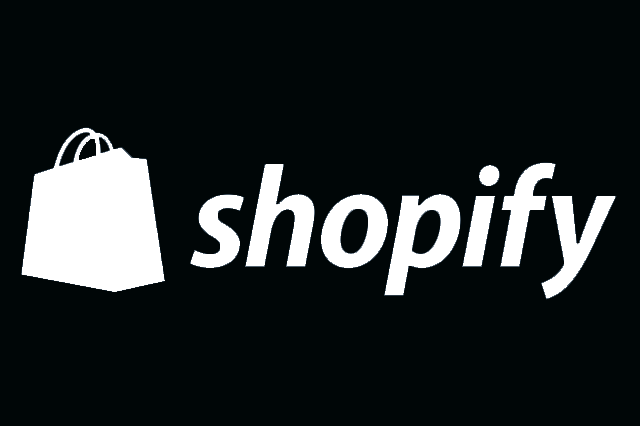Why use Shopify for your online store? The better question is, “Why not use Shopify for your online store?”
Ecommerce is quickly become the way of the future for retail. With skyrocketing costs to have a brick and mortar location, business owners, new and seasoned, are turning their attention to eCommerce.
Leading the way in this surge, in terms of platforms for online stores is Shopify. Some of their latest stats are staggering.
- There are over 800,000 merchants using Shopify in 175 different countries
- $14 billion in products sold in the 4th quarter of 2018
- Over 1 billion buyers from Shopify stores in the past year
You’re probably asking yourself what makes Shopify so special. Well, Shopify has found a way to merge the power of a platform like WordPress with the ease of use of a platform like Wix.
This is especially appealing to new business owners that don’t have large budgets. Having said that, even some larger, more established companies are choosing to use Shopify. Here’s a list of some of the biggest brands on Shopify.
- Budweiser
- The Economist
- Tesla Motors
- Fashionnova
- Red Bull
- Rebecca Minkoff
- Jeffree Star Cosmetics
- Lady Gaga Official Shop
- Lightbox Jewelry
- Nestle
Let’s dig a little deeper into what makes Shopify so appealing. Unlike some of the other website builders that are easy to use, Shopify users don’t have to worry about their sites looking like a carbon copy of another store. With Shopify there are tons of themes to choose from.
Themes
Shopify comes loaded with over 100 free and paid themes. Keep in mind that all the free themes are made by Shopify. Most of the paid themes range in price between $160 – $180.
With so many themes to choose from, it can be a bit overwhelming. To make matters easier, the themes are broken down by industries.
Shopify also allows users to use 3rd party solutions for their themes like ThemeForest. In addition, designers and coders that want to build their own themes are encouraged to join Shopify’s Theme Store community.
Management Tools
Arguably the most important aspect of an eCommerce platform (for the owner) is how well it helps you keep your inventory organized. With so many moving parts to eCommerce stores, one slip and your store can be in disarray.
Shopify helps users eliminate the clutter and keep their stores organized. They even have an abandonment cart recovery feature that automatically emails visitors that started making a purchase and never completed it. (Studies show that the average shopping cart abandonment rate is 69.23%.)
Starting with the setup, Shopify allows users to group products by category, type, season, sales, etc. Automation is also easier, products can be sorted by price, vendor and inventory level.
Barcodes
If you need to create a barcode or use an existing one, Shopify has you covered. With their wireless barcode scanner, store owners can instantly find orders from anywhere in their store.
Stock Tracking
Shopify’s inventory management system helps store owners keep track of inventory and eliminate issues like selling out of stock items. Their sophisticated system lets you set up reminders for when items are getting low in numbers, to update numbers on new shipments, let you know when to place orders and more.
Inventory Insight
Depending on the size of your online store, it can be hard to know exactly how each product is performing. Shopify’s management system gives store owners detailed information so they can see which products are performing well, which ones are in highest demand, etc. This is vital information when the time comes to run campaigns and promotions.
Apps & Plugins
Shopify has tons of Apps and Plugins to handle pretty much any need you may have for your online store. Store owners can easily integrate their stores with some of the most well know online channels like Instagram, Facebook, eBay and Amazon. Dropshipping is also made easier through apps like Oberlo.
Here’s a list of some of the top apps used by Shopify store owners.
- Oberlo
- Kit
- Order Printer
- Product Reviews
- Free Shipping Bar
- SEO Site Audit, Benchmark Hero
- Printful
- Improved Contact Form
- Klaviyo
- Digital Downloads
- PushOwl
- Form Builder
Pricing
If you’re considering using Shopify, they have 5 plans to choose from.
- Shopify Lite – $9/month – Getting started with eCommerce
- Basic Shopify – $29/month – The basics for starting a new business
- Shopify – $79/month – Growing businesses
- Advanced Shopify – $299/month – Advanced features for scaling your business
- Shopify Plus – $2000/month – Special support and features for larger brands
Payment Gateways
Having a reliable payment gateway, also referred to as online payment processors, is vital to all eCommerce stores. Customers want to know that they are safe whenever they are entering their card number.
There are many options when it comes to payment gateways and different factors come into play such as your location. On Shopify’s website, they have a list of over 100 payment providers around the world that you’ll have access to.
Keep in mind that each payment gateway offers different features. Some are more catered to new business owners and others are for more established stores. Choosing the wrong one may cut into your profit margin, so make sure you do your due diligence before making a choice.
It’s worth noting that Shopify has their own payment gateway too. For many store owners this may be the most cost-effective option because it will eliminate the 2.2% transaction fee that assessed just to use the platform. Nonetheless it depends on what you want and the great thing about Shopify is they give you freedom.
Some of the other popular payment gateways that Shopify store owners used are listed below.
If you need additional help with Shopify, don’t hesitate to contact UpSpark Creative. You can send us an email or give us a call at 404-590-4019.


0 Comments